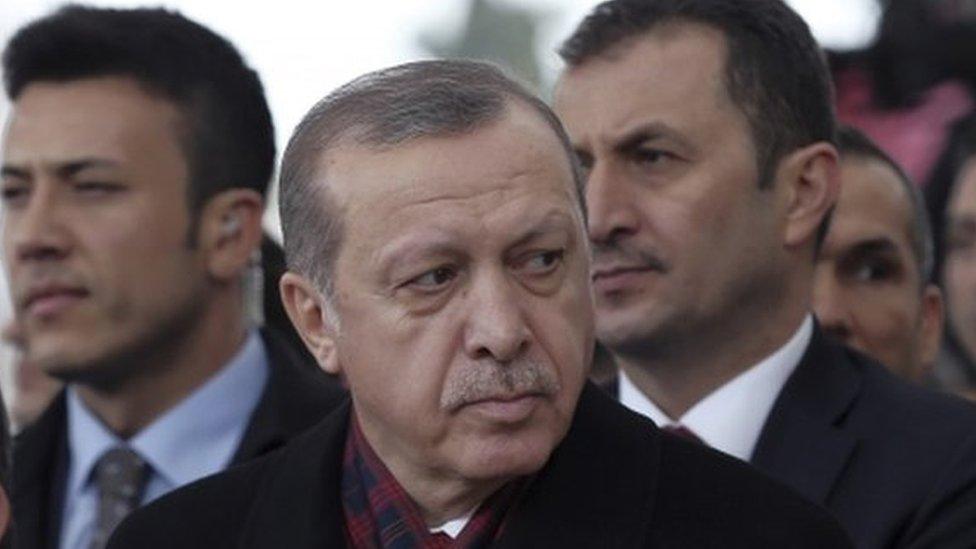Why some German politicians want Erdogan banned
- Published
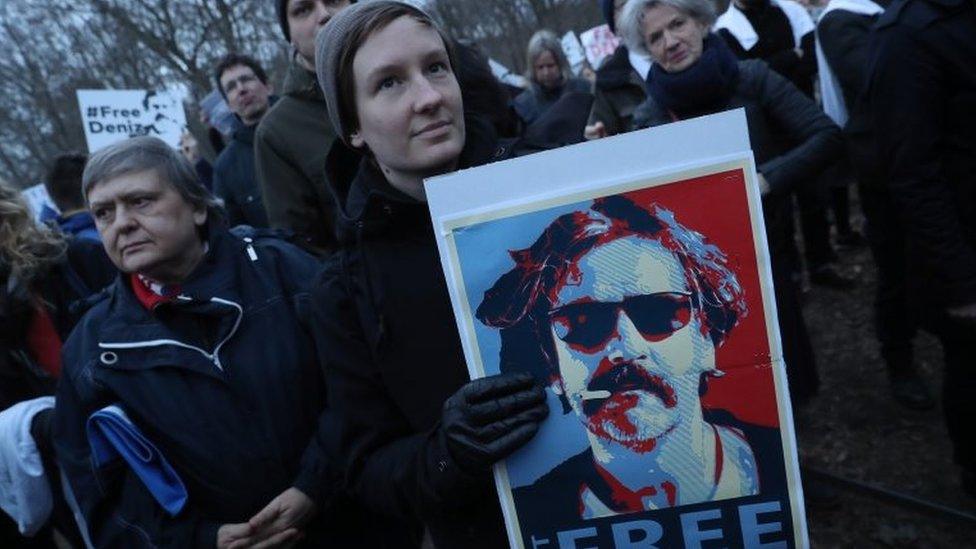
"German-Turkey relations are facing one of their greatest challenges of the modern era," German Foreign Minister Sigmar Gabriel said, a day after a German-Turkish journalist was formally charged in Turkey with producing terrorist propaganda and undermining the government.
The detention of Deniz Yucel, who works for German newspaper Die Welt, has led to an outpouring of anger and frustration from German politicians and media figureheads alike.
Some politicians have even called into question whether future visits to Germany by Turkish President Recep Tayyip Erdogan as part of an upcoming election campaign should be allowed to go ahead.
Who is he?
Mr Yucel, 43, is the first German reporter to be detained in Turkey as part of a widescale crackdown on media freedom that has seen more than 150 Turkish journalists arrested in recent months.
The dual German-Turkish national has been Die Welt's Turkey correspondent since May 2015.
He has been held since 14 February, pending charges.
Why is he being detained?
According to his lawyer, he has been charged with membership of a terrorist organisation, spreading propaganda and misuse of information.
The case relates to Mr Yucel's reports on the hacking of a private email account belonging to President Erdogan's son-in-law and Energy Minister, Berat Albayrak.
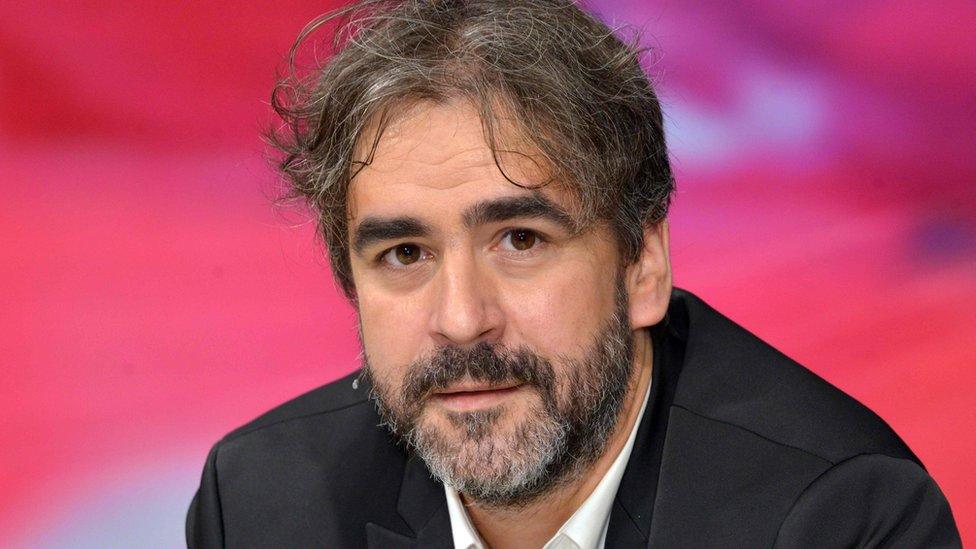
Deniz Yucel had been reporting on leaked emails
The emails were made available by whistle-blowing platform Wikileaks. They discussed control of state media groups and influencing the public through fake users on Twitter, Die Welt reports, external.
Another six journalists who work for Turkish media outlets have been arrested over the leak, dubbed the Redhack affair.
A court in Istanbul ruled on 27 February that Mr Yucel should remain in police custody pending trial - nearly two weeks after he first handed himself in for questioning.
It is not yet clear when his trial will take place.
How has Germany reacted?
Germany summoned Turkey's ambassador on 28 February to protest against Mr Yucel's arrest.
Foreign Minister Gabriel said that no country that claimed to be democratic or to respect human rights could "misuse" its judicial system to go after journalists, while German President Joachim Gauck condemned it as an attack on freedom of press, external.
The move was "disappointing" and "disproportionate", according to Chancellor Angela Merkel, who said Berlin would insist on "fair and legal treatment" of Mr Yucel.
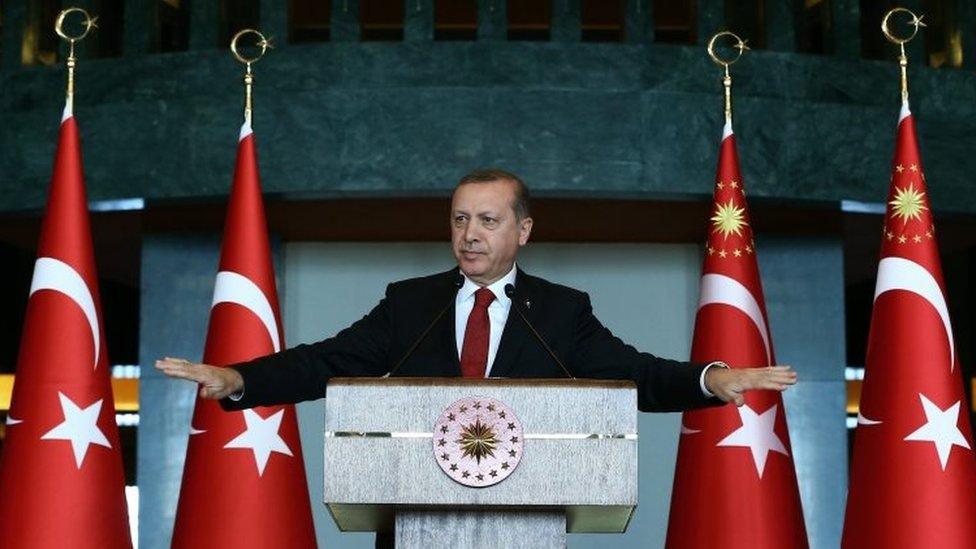
President Erdogan is hoping to campaign in Germany for Turkey's constitutional referendum
A number of politicians are demanding retaliation in the form of an entry ban to prevent President Erdogan from campaigning in Germany - where Turks form the largest ethnic minority - for Turkey's constitutional referendum next month.
Leftist MP Sevim Dagdelen told Bild newspaper the Turkish government "cannot make an election campaign for dictatorship and death".
It comes just days after Turkish Prime Minister Binali Yildirim addressed a rally in Oberhausen, north-western Germany.
Meanwhile, journalists in Germany and abroad have been rallying in protest against the charges, with full pages in German newspapers dedicated to call outs for Mr Yucel's release.
The Axel Springer media group that owns Die Welt hung a large #freedeniz sign from the roof of its building, with protests reported across the country, as well as in Switzerland and Austria.
How are German-Turkey relations?
German-Turkish ties have been strained since Turkey launched a major crackdown sacking tens of thousands of people from the civil service, police and judiciary in the wake of a failed coup last July.
Mr Erdogan's ruling AK Party has also shut down some 170 media outlets, during a continuing state of emergency, and arrested more than 100 journalists. Critics have condemned the move as an attempt to silence opponents.
Separately, there is an ongoing federal investigation into allegations of spying by Turkish clerics in Germany on suspected supporters of Fethullah Gulen, a cleric who lives in self-imposed exile in the US and was blamed by President Erdogan for the coup attempt.
Where does Turkey stand on press freedom?
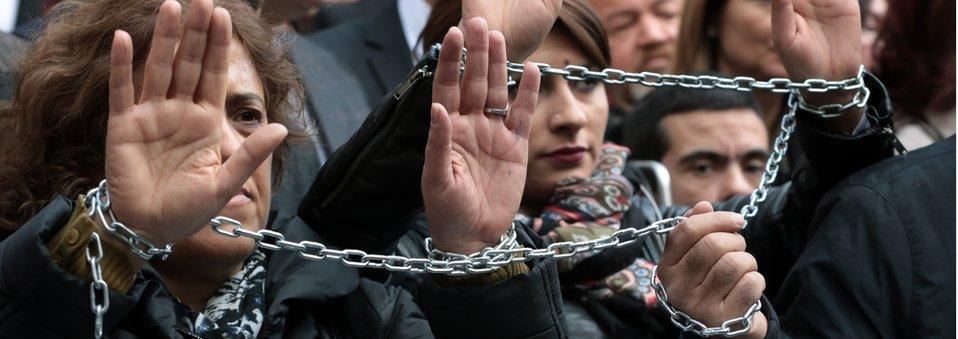
Turkey is ranked 151st of 180 countries listed in the Reporters Without Borders World Press Freedom index.
Since the coup attempt, 170 media outlets - newspaper, magazines, TV stations and news agencies - have been closed, according to Turkey's journalists' association. About 150 journalists have been imprisoned, with the press accreditation of more than 700 journalists revoked.
Among those detained were the editor and several writers of Turkey's oldest secular paper, Cumhuriyet.
- Published27 February 2017
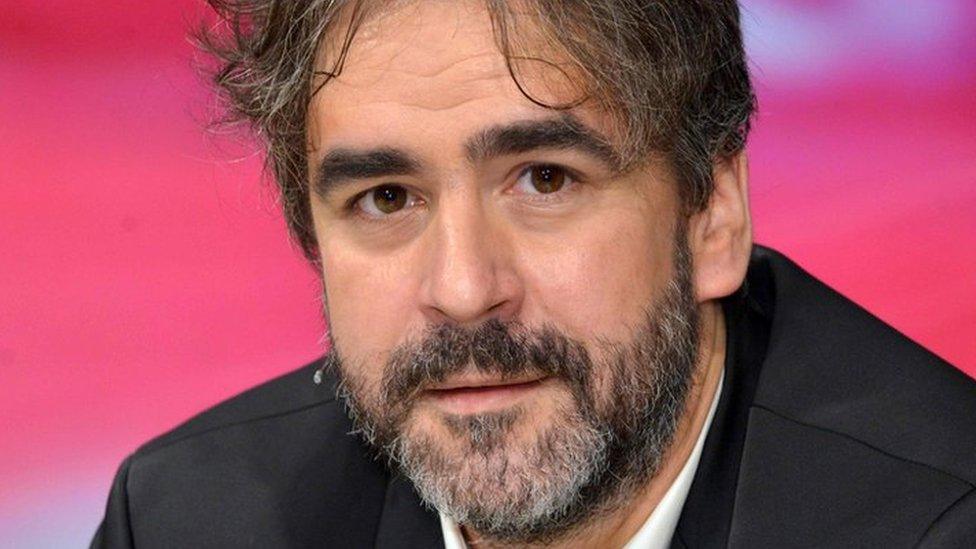
- Published24 February 2017
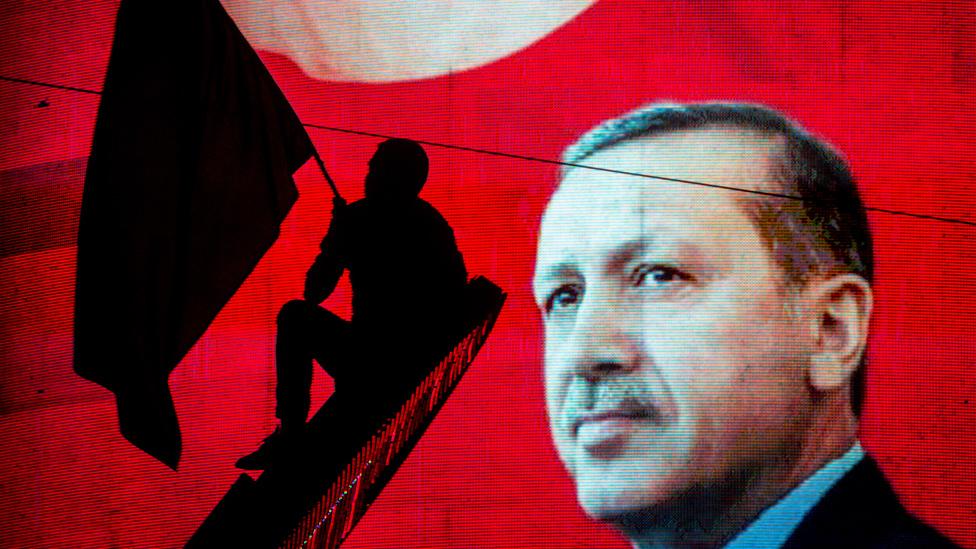
- Published29 December 2016
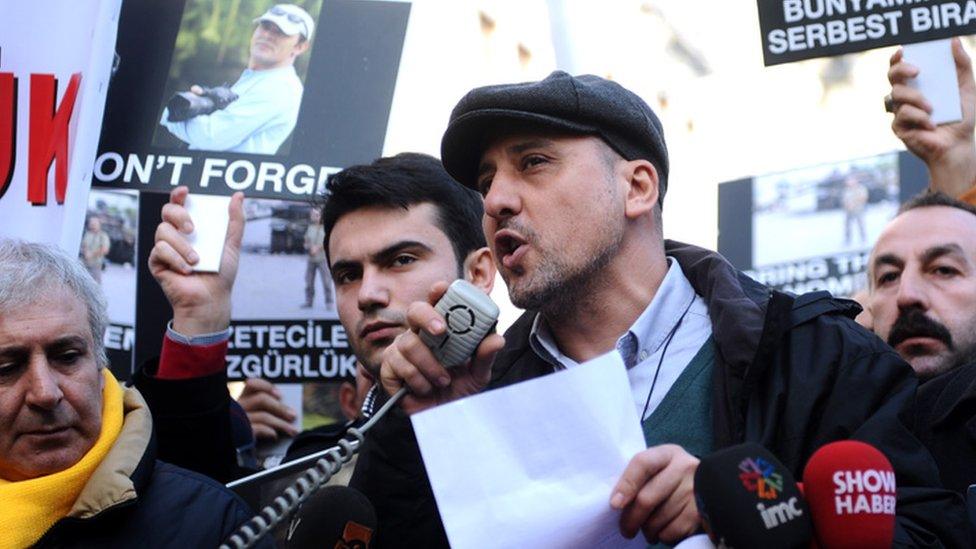
- Published31 October 2016
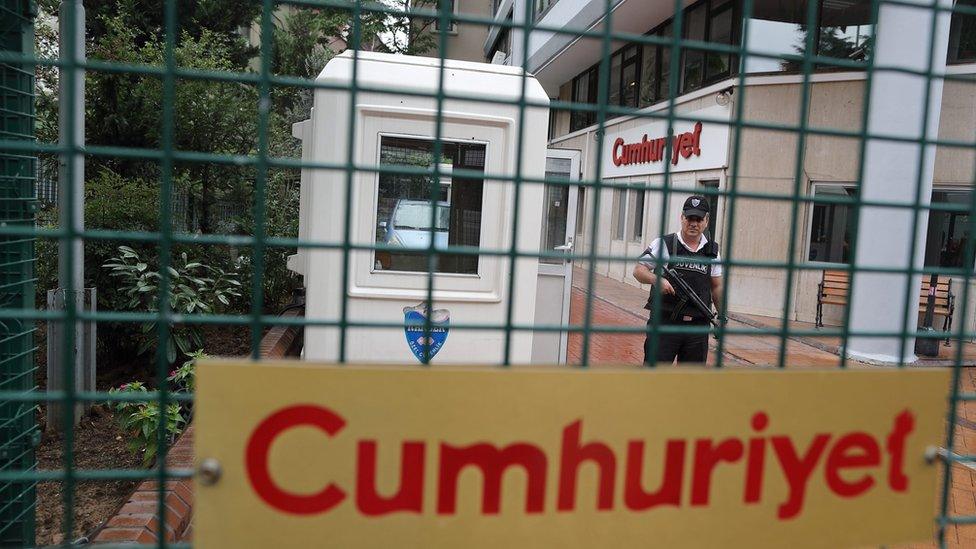
- Published27 December 2016
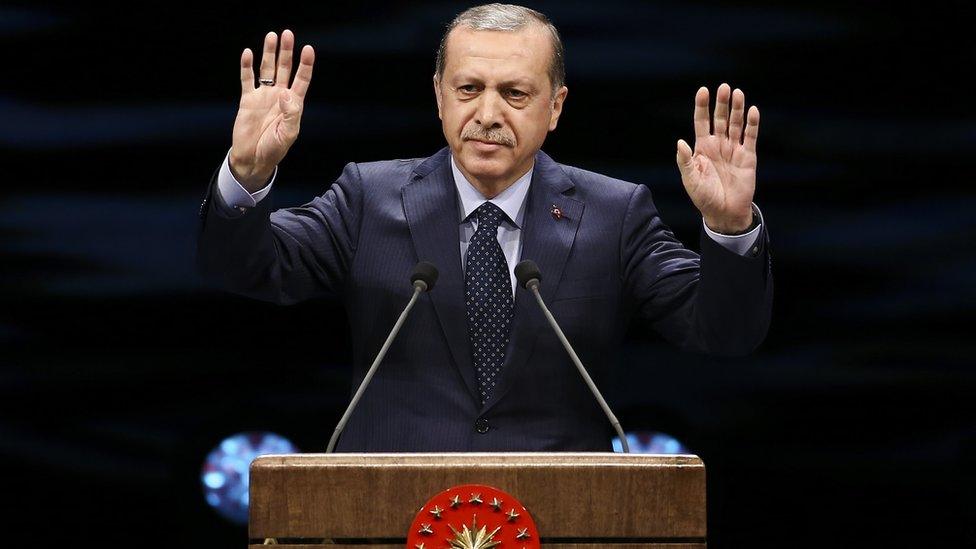
- Published5 November 2016
